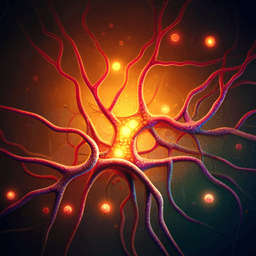
Medicine and Health
Efficacy and tolerability of repetitive transcranial magnetic stimulation for the treatment of obsessive-compulsive disorder in adults: a systematic review and network meta-analysis
K. Liang, H. Li, et al.
Discover the latest findings from a systematic review and network meta-analysis examining the efficacy of rTMS strategies for treating OCD conducted by Kaili Liang and team. Low-frequency rTMS over the DLPFC showed significant promise, surpassing sham treatments, paving the way for future explorations in mental health therapies.
Related Publications
Explore these studies to deepen your understanding of the subject.







